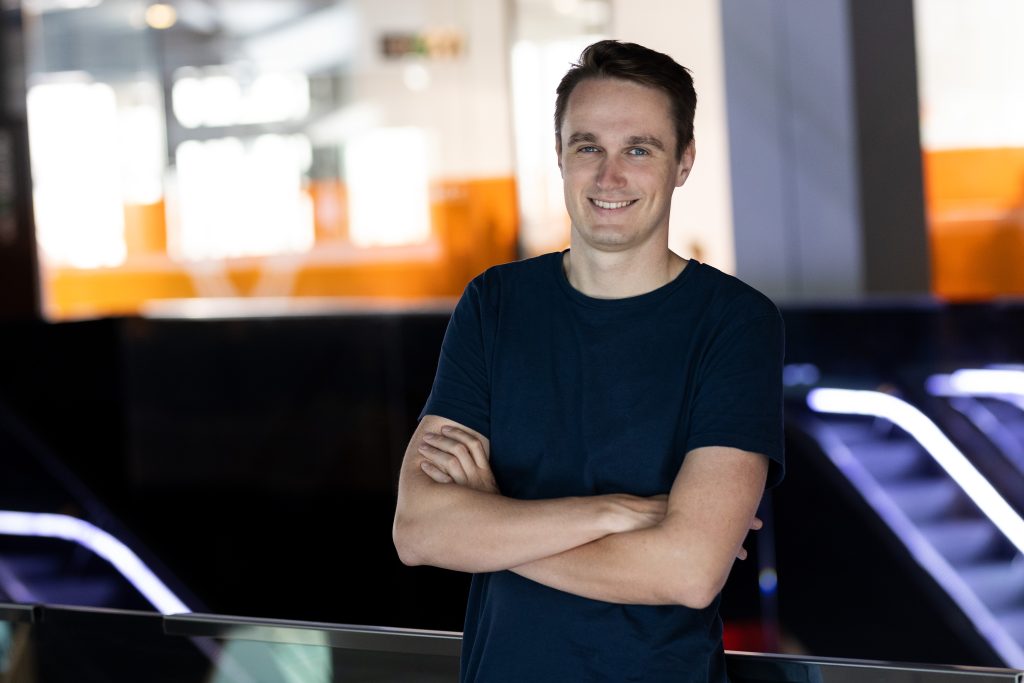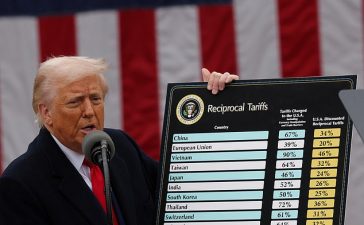The cost of living crisis means 2023 is unlikely to be the year of the consumer.
An October 2022 report by McKinsey & Company found that 58% of consumers in Europe named increasing prices as the thing that worried them most, and nearly four in ten had reduced their non-essential purchasing. Sifted reported last year that some employees were even using company benefits to pay for things like electricity.
So where does that leave consumer startups? Is the sector doomed?
Apparently not, according to VCs. From an app to spice up your dinner routine to finding love through a mini-game dating platform, here are 15 consumer tech startups investors reckon are still worth keeping an eye on.
Thomas Bigagli, director in France at Plug and Play

Heimkapital — Munich
Heimkapital allows real estate owners, particularly older people, to sell a portion of their property and receive an immediate payment. The company essentially takes an equity stake of up to 50% in the value of the property, and enables customers to use their existing assets to meet financing requirements, without resorting to taking on debt. The service enables these individuals to access their property’s capital immediately, which might otherwise be inaccessible, and use it to achieve their financial goals.
Lollipop — London
Lollipop’s app helps you discover new recipes to spice up your dinner routine and streamline the process of buying ingredients. Unlike meal kit delivery services, which provide pre-measured ingredients, Lollipop makes use of regular supermarket products and is integrated with your weekly grocery shopping routine. The recipes also share common ingredients to help reduce food waste and limit the range of products you need to purchase in one shop.
Ukio — Barcelona
Ukio’s real estate platform helps individuals live flexibly in their preferred location and within a time-frame that suits them. It offers fully furnished, designed apartments for stays as short as one month. By eliminating the inconvenience of long-term leases, furniture buying, security deposits and broker fees, Ukio provides freedom and flexibility to choose where and when to live.
Virgil — Paris
Virgil addresses the challenge of property accessibility through two initiatives: it invests up to €100k alongside you when you purchase a property — which it calls home equity — and supports young workers through the entire process of purchasing their first residence. By investing in a property alongside the prospective homeowner, Virgil then owns a percentage of the home — but won’t take monthly payments or rent, and has no right of inspection.
Matt Chandler, investor in consumer tech at Octopus Ventures

Smitten — Reykjavik
Rather than awkward conversation or question prompts, Smitten’s dating platform uses mini-games for you to get to know other users. This breaks down existing barriers to online social connection, driven in part by people not knowing what to say to one another. Smitten is a fun way to connect with others, learn about them through games like “lie detector” and build connections, whether to beat loneliness or find love.
Bhout — Lisbon
Bhout’s boxing bag combines gamification and fitness to draw anyone into the sport. Its bag “with a brain” combines sensors and computer vision to accurately track the user, enabling real-time feedback, tuition and gameplay to make the bag into a fun competitive sport.
A library of community-built fitness routines can be accessed through the app, and users can make their own custom games to challenge others. Plus, the boxing bag gathers data on the player’s performance and progress, which can all be viewed on the platform — the company is planning to release the ability to convert gameplay time into a virtual currency, which will be used to buy avatars and accessories.
Anna Bosch, investment manager at btov Partners

baupal — Berlin
Homeowners are being forced to re-evaluate the current energy status of their building. This is where baupal comes in: the company is building an in-app energy consultant that helps homeowners identify the energy potential of their homes.
In addition to providing an automated energy audit, it’s also building a one-stop shop with a data-based inquiry tool that efficiently connects clients with products and contractors to action any energy saving home improvements.
Napo — London
With Napo, pet owners can not only easily access pet insurance but also pet health and prevention information, as well as educational material on pet ownership and video appointments with vets. By bringing all products and services under one umbrella, Napo is building a platform that covers the full spectrum of pet care.
whylab — Berlin
Whylab is building a group-support platform that matches peer groups for any life challenge (including job crisis, grief, infertility or parenthood challenges) and fosters real-time sessions led by professional experts. It also offers learning videos on common problems, like managing stress, and downloadable digital resources for journaling activities.
Max Wilhelm, associate on the marketplaces and consumer investment team at Speedinvest

Cardino — Turkey
Cardino is a marketplace for used electric vehicles. Its platform lets sellers access a C2B network to auction off their cars commission-free. Everything from valuation and management of auction offers to finding the best deal and free vehicle pickup once a car is sold is done by the Cardino team on the platform, with no cost to sellers — the car dealers who purchase the vehicles pay a fee, instead.
Knowunity — Berlin
Berlin-based Knowunity has built one of the largest communities of students in Europe, enabling them to share learning content and prepare for exams in an easy, affordable and engaging way. Students who share learning content and notes can earn money as Knowunity creators, while also helping fellow community members with their personal learning journeys. The community forum also offers a platform for questions and support.
Laura McGinnis, associate at Balderton

Glowb — London
Glowb guides clients through the process of transitioning to renewable energy. Currently prepping for its pilot stage, the company is aspiring to democratise and simplify the path towards a sustainable future, by taking over every step of the switch to solar energy and other home improvements that can help reduce emissions.
Shellworks — London
Shellworks is pioneering a new era of compostable packaging alternatives to plastic using bacteria, for the plastic-centric beauty and personal care industries. It has created Vivomer — a material made from microorganisms found in soil and marine environment — to reduce plastic waste created by the packaging of makeup, self-care products and toiletries.
Voggt — London
Voggt is a social ecommerce platform for collectors — whether that’s cards, trainers or Pokemon plushies — and offers a space where people can add to their collections by buying securely from other users during live streams. By placing collectors at the centre of its mission, Voggt connects buyers and sellers, empowering them to share their passion for collectables and fostering a deeper sense of connection through community chats and forums.
Detail — Amsterdam
The Detail app allows creatives to create high-quality, edited content from their iPhone, DSLR or webcam for social platforms like Twitter and TikTok. It enables them to elevate their social stories to the level of a Spielberg film, all without having to spend large sums on renting podcast studios or editing services.
Sadia Nowshin is editorial assistant at Sifted. She tweets from @sadianowshin_











